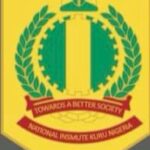About 80,000 healthcare workers are set to be vaccinated within two weeks in South Africa. They will benefit from the first batch of Johnson&Johnson COVID-19 vaccines that just arrived in the country.
This was disclosed by Health Minister, Dr. Zweli Mkhize when he briefed the parliament, on Tuesday.
Speaking during a parliamentary debate, Mkhize said the country was on course to complete the first 40,000 vaccinations by Wednesday.
The next batch of 80,000 doses of Johnson&Johnson vaccines would arrive the country, on Saturday, 27 February, 2021.
“Our health care workers, who are our frontline soldiers and main defense in fighting this virus, have not been spared the devastating effects of the second wave in South Africa, driven by the 501Y.V2 variant,” Mkhize said.
Statistics show that in South Africa, healthcare workers are 3-4 times more likely than the general population to develop COVID-19. This is reflected by the 54,685 health workers who have been infected in the public sector, with 779 having passed on.
Mkhize said South Africa was “never asleep; we chose a strategy that was guided by science as we did not have the financial muscle to make unhedged bets. Our approach has paid off as we have been able to be nimble and precise around the tricky issue of the variant”.
The procurement of the vaccines has been a complex process that required negotiations with multinational manufacturers of vaccines in the face of vaccine nationalism and protectionism. Just recently, it was announced that more than 133 poor countries across the globe have not received a single dose of the vaccine – primarily because the richer countries have utilised their financial muscle to procure vaccines on risk and far in excess of what they need.
Mkhize said it was for this reason that government opted to diversify its approach to vaccines procurement by engaging through various mechanisms – bilaterally through continuous engagements with individual manufacturers; multilaterally through the COVAX facility and regionally through the African Union’s Vaccine Financing and Vaccine Acquisition Task Team.
“We have signed Non-Disclosure Agreements with most of the leading manufacturers. This allows us to gain critical insight into their supply lines, their manufacturing plans and possible blockages in the manufacturing pipeline. It also allows us to pursue negotiations over prices, volumes and timelines for delivery.
“By pursuing vaccination under the Sisonke Protocol, which allowed us to use the Johnson&Johnson batches that had already been certified by SAHPRA under research conditions, we will be one of very few nations that undertakes a well-designed impact assessment as we rollout vaccines to our health care workers.”
Recent studies by the Human Science Research Council showed that 67% of our citizens would either definitely take the vaccine or would probably take the vaccine and only 12% said they would not take the vaccine.
“This evidence assured us that the high level of vaccine hesitancy that was purported to threaten our ability to rollout vaccines was actually not true,” Mkhize said.
To date, there have been almost 500,000 registrations on the EVDS system.
With regards to the sale of the AstraZeneca stock to the African Union, Mkhize confirmed that South Africa is selling the doses at cost price.







